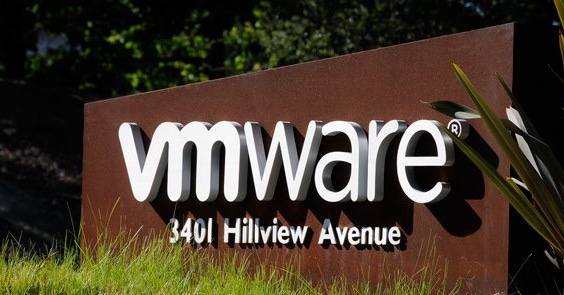Kit maker Broadcom's acquisition of VMware could hamper innovation in the server market, according to the UK's Competition and Markets Authority.
March 22, 2023

Kit maker Broadcom’s acquisition of VMware could hamper innovation in the server market, according to the UK’s Competition and Markets Authority.
The tie-up was announced last May and the CMA published the findings of its Phase 1 investigation into the $61 billion deal on Wednesday. If it goes through, it will bring together a major supplier of hardware and software solutions to the networking and server markets in Broadcom, and VMware as one of the biggest suppliers of server virtualisation software.
That ‘if’ was looking like quite a big ‘if’ on Wednesday though, after the CMA chimed in with its thoughts.
“Computing infrastructure underpins the services that public and private organisations rely on to support their operations and to support their users and customers – that is to say, all of us. Servers are a vital building block, functioning largely thanks to hardware products made by firms like Broadcom, working in unison with virtualisation software from firms like VMware,” said David Stewart, executive director of the CMA, in a statement.
“We are concerned this deal could allow Broadcom to cut out competitors from the supply of hardware components to the server market and lead to less innovation at a time when most firms want fast, responsive, and affordable IT systems,” he said.
The Phase 1 investigation concluded that both Broadcom and its rivals rely on being able to sell products that are compatible with VMware’s software. If Broadcom gobbles up Vmware, there is a risk that Broadcom will prevent those rivals from selling Vmware-compatible products – like network interface cards (NICs) and storage adapters – which would harm competition.
The CMA doesn’t stop there.
It is also concerned that by acquiring VMware, Broadcom will gain access to commercially-sensitive information that its rivals provide to VMware, including details of upcoming products. This could stifle innovation, to the detriment of end users.
Broadcom has five working days from the CMA’s announcement to offer legally-binding proposals to address the watchdog’s concerns. If submissions are submitted, the CMA has five days to review them before deciding whether to launch a more in-depth, Phase 2 investigation.
Broadcom will have its work cut out to convince the CMA that VMware – as a supplier to both Broadcom and its rivals – faces sufficient competition in the server virtualisation software market to assuage its concerns. That, and the other sticking points about potentially accessing rivals’ intellectual property, and having the means and incentive to make VMware exclusively available to Broadcom customers, means that a Phase 2 investigation is probably a given.
It is also usually the way these things go when a deal involves two big, overlapping companies and billions of dollars.
Last October, the CMA referred Viasat’s $7.3 billion acquisition of rival satellite operator Inmarsat for a Phase 2 investigation, primarily due to concerns about the deal’s impact on the in-flight connectivity market. Happily – for those two at least – the subsequent in-depth probe led the CMA to give its provisional blessing to the merger earlier this month.
The same cannot be said of Microsoft’s $69 billion swoop for games developer Activision Blizzard. The Phase 2 investigation, which was launched last September, concluded with the CMA saying it opposed the deal, warning that end users would face higher prices, fewer choices, and less innovation as a result.
Get the latest news straight to your inbox. Register for the Telecoms.com newsletter here.
About the Author(s)
You May Also Like








.png?width=300&auto=webp&quality=80&disable=upscale)


_1.jpg?width=300&auto=webp&quality=80&disable=upscale)


.png?width=800&auto=webp&quality=80&disable=upscale)